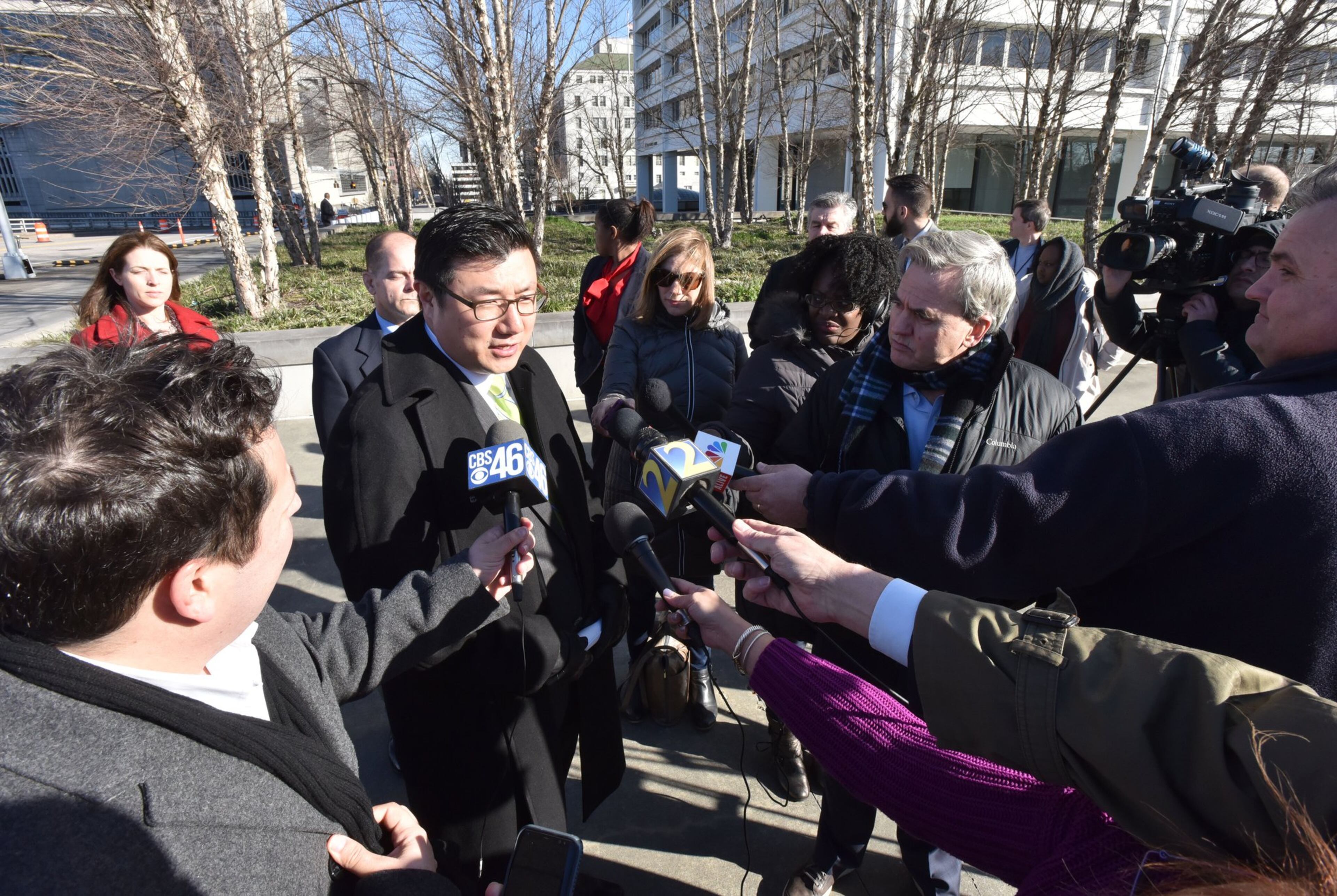OPINION: From dead rats to roses: Plea likely ends Atlanta corruption case

“Machine Gun” Jim Beard, once the city of Atlanta’s top finance guy, stood before a federal judge the other day and admitted, Yeah, you got me.
His guilty plea meant he was the 10th person to fall in the investigation into corruption at Atlanta City Hall that started in 2015 or earlier. Seven of the now-felons were city officials, three were contractors. Almost everyone, including a former prosecutor in the case, thinks this is the end.
Beard’s case wasn’t the usual bid-rigging case with envelopes of cash. No, you can sum it up by saying, machine guns and rock n’ roll.
One of his admissions was using $1,278 of city funds to set up his stepdaughter in a Chicago Marriott to attend the Lollapalooza music fest. The other most notable offense was using $2,641 of taxpayer money to buy himself two custom-made machine guns he said were to be used by APD. Machine guns are extremely difficult for average Joes — or Jims — to obtain.
The feds say he had the guns for a year, finally abandoning them in a city locker in March 2017. That makes sense. Just weeks earlier, word got out that the feds were sniffing around City Hall, causing great unease in some quarters.
Another charge — that he did not plead to but could arise during sentencing in July — was a three-day, $1,356 romantic staycation at The St. Regis hotel in Buckhead with his wife on the city dime. He upgraded with private dining and a “rose-petal turndown service.” That’s tossing rose petals all over the bed.
Why would a 60-year-old Northwestern University grad and former CFO making $250K per annum throw it all away for low-level crookery?

It’s hard to say and Beard hasn’t. People just do stupid stuff. Perhaps certain city officials became used to free perks like fancy dinners, comfy travel and plush hotels and grew to believe they deserved it. Maybe some had larceny in their hearts.
Buddy Parker, a former federal prosecutor who now does plenty of white collar fraud cases, told me, “It’s ego. You think that you’re the smartest person in the room. It’s chutzpah. I’m not a psychologist or therapist but there are people who like to play in the fast lane. They like the thrill of it all.”
Until the FBI comes a-knocking, that is.
The case became public in January 2017 when a well-connected contractor, E.R. Mitchell, pleaded guilty to paying $1 million in bribes to get work. Also, the feds made it known that a low-level city employee connected to City Hall insider Mitzi Bickers, who is now in prison, tossed a brick through a window of Mitchell’s home with a message scrawled on it. “E.R. Keep you mouth shut!!!” it said.
To emphasize his point, the vandal left dead rats on Mitchell’s doorstep.
That’s some way to kick off a scandal! It was the third widespread pay-to-play corruption scandal at Atlanta City Hall in the 30-some years I’ve been here: The early 1990s, early 2000s and late 2010s. It’s reminiscent of cicadas emerging every decade like clockwork.

The media, of course, went on hyperdrive to dig up dirt or make sense of what was happening. Two weeks after the revelation of payoffs and rats, then-Mayor Kasim Reed released some 400 boxes of documents in a press conference to show he was all about transparency. There were 1,476,000 crisp sheets of paper tightly packed into those boxes in no particular order.
I must hand it to Hizzoner for his sense of showmanship.
Reed then spent the rest of 2017, his last year in office, and the next four wondering if the feds were coming after him. Which, by all indications, they were.
“The ethics and culture of an organization start from the top,” U.S. Attorney Byung J. “BJay” Pak said more than once, and again when we talked this week.
He did not want to comment on Reed.
“People in charge set the tone,” Pak said. “If there’s a perception (of non-compliance) then people see that and mimic it. There was certainly a climate of weak compliance at the time.”
As to the opinion that prosecutors were targeting Reed, Pak said, “We looked at a lot of people and made some hard decisions. We rooted out a lot of corruption.”
Reed, who did not respond to me, always said he had nothing to do with any corruption. And, although we never sent each other Christmas cards, I believe that.

I’ve written more than once that I’d be shocked if Reed was ever indicted for payoffs, contract steering or any other grubby skullduggery. He was too smart and knew an unindicted former mayor was worth $500,000 with a silk-stocking law firm.
Craig Gillen, a former federal prosecutor who knows his way around a corruption investigation, represented Reed. Gillen didn’t want to talk about the case, but said, “Ten years is a long time as investigations go. People’s lives and futures hang in the balance. It’s in the interest of law enforcement, the individuals involved and the public that things are concluded as efficiently as possible.”
During the time of the investigation there have been four U.S. Attorneys (five if you include the guy former President Donald Trump put in for a few weeks after Pak left), three mayors and even three U.S. presidents.
So, will any of this sink in?
Attorney Don Samuel, a veteran of many public corruption cases, doesn’t think so.
“Not at all,” he told me. “It doesn’t change human nature.



